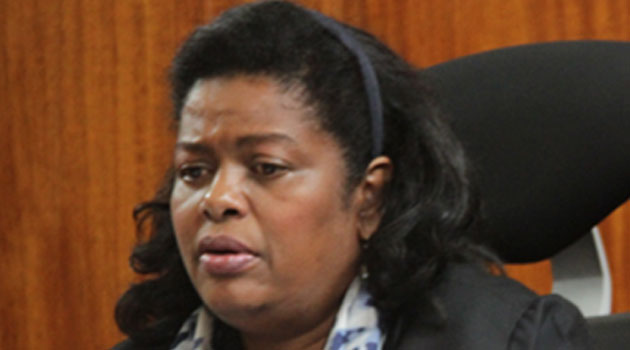
Njuki Ndung’u files petition challenging JSC’s jurisdiction to determine petitions against her » Capital News
NAROBI, Kenya Feb 21- Supreme Court Judge Njoki Ndung’u has turned to the High Court in a bid to stop the Judicial Service Commission (JSC) from proceeding with petitions seeking the removal of the entire Supreme Court bench over alleged misconduct and incompetence.
The petitions, filed by former Cabinet Secretary Raphael Tuju, lawyer Nelson Havi, and Christopher Rosan, a lawyer, have put the entire Supreme Court bench led by Chief Justice Martha Koome under scrutiny, an action Justice Njoki strongly opposes.
In her Petition Justice Ndung’u is seeking interim orders to halt the hearings until the case against the Commission is heard and determined.
She maintains that the process is flawed, unconstitutional, and a potential threat to the independence of Kenya’s top ranking court.
Through her lawyer, Andrew Musangi, the Apex Court judge is challenging the JSC’s jurisdiction over the matter.
“The petitioner, a sitting Supreme Court Judge, has been subjected to unconstitutional disciplinary proceedings before the JSC, based solely on judicial decisions rendered within the scope of her official duties,” stated lawyer Musangi .
Justice Ndung’u argues that the commission would be overstepping its mandate by proceeding with the petitions.
She maintained that the proceedings violate the constitutional principle of judicial independence, as outlined in Article 160, which affirms that the Judiciary is subject only to the Constitution and the law, not to any other person or authority.
Justice Ndung’u claimed that allowing the JSC hearings to continue would set a dangerous precedent, potentially opening the door for disgruntled litigants to weaponize the commission against judges whose rulings they disagree with.
She warned that this could undermine judicial independence.
While recognizing the JSC’s crucial role in upholding judicial accountability, she argues that its powers do not extend to reviewing or overturning judicial decisions made within a judge’s legal authority.
According to her the commission is strictly limited to investigating claims of misconduct, incapacity, or incompetence as a constitutional body.